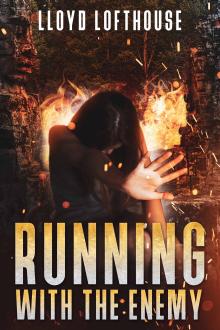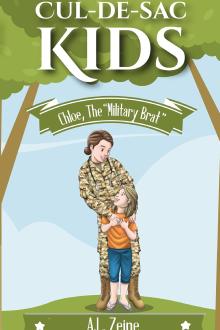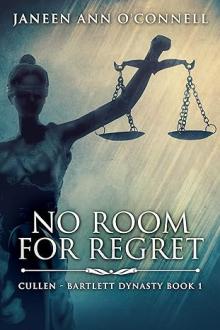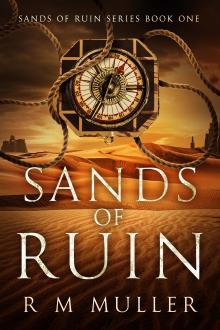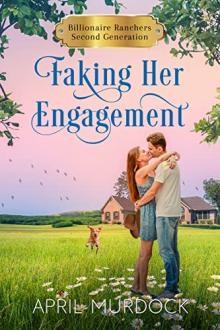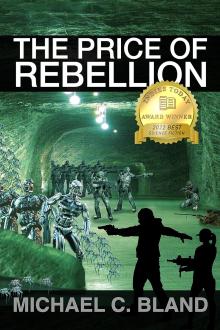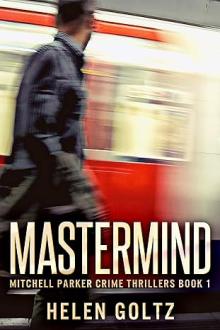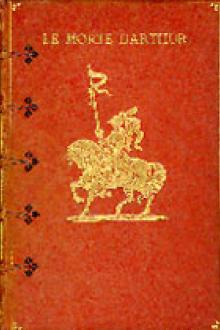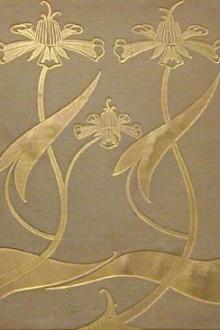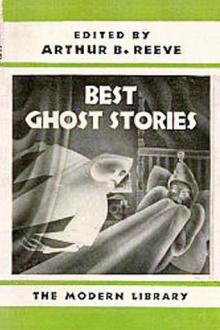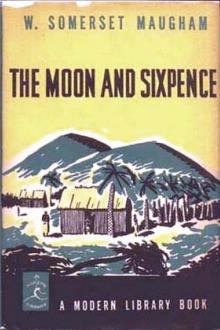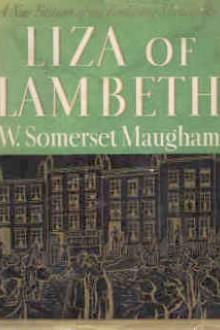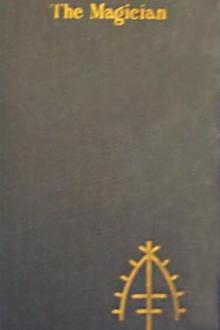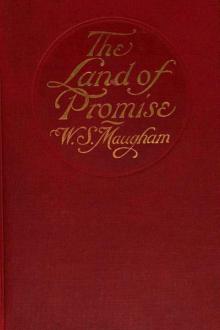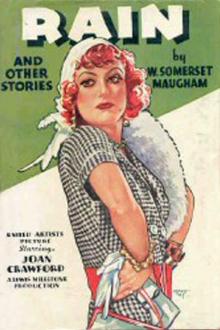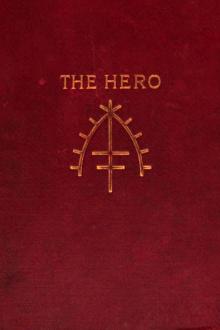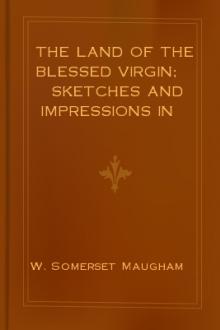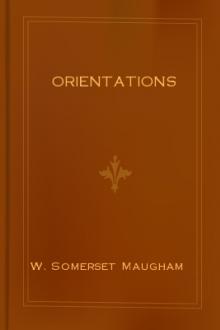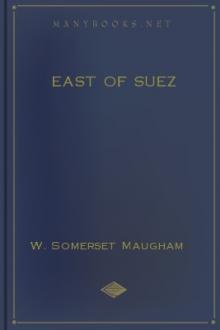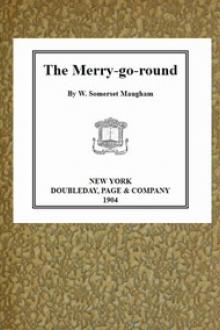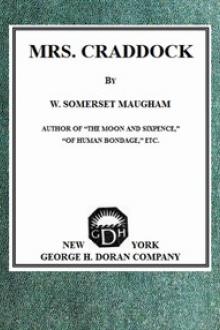Of Human Bondage
Of Human Bondage
This novel deals with the life of its main character Philip Carey, who, like Maugham, was orphaned and brought up by his pious uncle. Taking the form of a bildungsroman, Maugham traces the protagonist's travels to Germany, Paris, and London while exploring his intellectual and emotional development and later, in the London period, his destructive relationship with the main female character, a crude cockney waitress by the name of Mildred.
Book Excerpt
you'd better," said Emma.
"Go in and tell them I'm coming," he said.
He wished to make the most of his opportunity. Emma knocked at the door and walked in. He heard her speak.
"Master Philip wants to say good-bye to you, miss."
There was a sudden hush of the conversation, and Philip limped in. Henrietta Watkin was a stout woman, with a red face and dyed hair. In those days to dye the hair excited comment, and Philip had heard much gossip at home when his godmother's changed colour. She lived with an elder sister, who had resigned herself contentedly to old age. Two ladies, whom Philip did not know, were calling, and they looked at him curiously.
"My poor child," said Miss Watkin, opening her arms.
She began to cry. Philip understood now why she had not been in to luncheon and why she wore a black dress. She could not speak.
"I've got to go home," said Philip, at last.
He disengaged himself from Miss Watkin's arms, and she kissed him again. Then he went t
FREE EBOOKS AND DEALS
(view all)Popular books in Fiction and Literature
Readers reviews
3.8
LoginSign up
I found this book very interesting. A very adult book for its time. it doesn't pull punches.
- Upvote (0)
- Downvote (0)
"Of Human Bondage" is an unlikable book about unlikable people doing unlikable things. It admittedly has a broad scope, and it does express the struggle of Philip very well, but it makes me want to enter my Magic Literature Machine, travel into the novel, and kick Philip in the seat of the pants a few times.
04/02/2010
At the outset I must say that I highly recommend "Of Human Bondage." It is a solid and serious yet enjoyable work, written in a crisp and clean style, and well worth reading. Its characters are realistic and very human, both in their strengths and their failings.
Its situations are very hard-edged -- Maugham shows us what social problems look like, and pulls no punches while doing so. Prostitutes here don't sell sex by choice, but because they have no choice. And they don't end up nicely turning into housewives, but instead infected with syphilis, their children dead, on a downward spiral into destruction.
"Of Human Bondage" is also probably the best picture of poverty I've seen since (in terms of my reading) Orwell's "Down and Out in Paris and London," and is all the better for being more serious on the one hand, and broader on the other, for it concerns itself not with those who are poor by choice (like Orwell was), but whole families and classes of people who are poor for reasons beyond their control.
Jeff Bristol has written a long review of this book, and in addition to giving a general introduction makes a number of good points. I am going to concentrate in the following on some ways my take differs from his (though with all due respect for his fine review).
The first of these would concern the end of the book, namely, Philip's marriage to Sally, the daughter of his friend. And although I agree there is a degree of compromise there, in that Philip gives up on his dreams, I think that this actually relates the strongest aspect of Philip's internal growth, namely, the ability to finally look beyond his imaginings and desires, and instead being "where he was": this was a move away from dream and toward maturity and reality.
It was a hard-won development, and it is not only sexual politics but also personal growth that leads Philip to acknowledge the problems with his lust for Mildred, and to contrast those feelings with that something quieter but deeper he feels for Sally. The fact that Sally was _not_ pregnant when Philip asked her to marry him underscores that this was a free choice on Philip's (and her) part, not because of external factors.
I think also we can connect this to Philip's changing attitudes toward his job. Philip dreams of sailing away to distant lands, to visiting a world he knew from picture-books as a child. This world of pictures is clearly an analogue of his dreams of becoming a painter (an avocation he lacks the talent for). Leaving the world of pictures behind represents leaving his childhood and becoming an adult.
Instead of this dream, he chooses a comfortable but hardly luxurious life as a physician in a small community, working with a difficult partner. This may be compromising youthful dreams for adult reality, but that is a compromise many people make.
Finally I would argue that although it is true that Mildred's character is manipulative and destructive in the end, she does not start out that way. Indeed she starts out being diffident, and clearly showing her lack of interest in Philip, who himself seeks to manipulate her through gifts and demands. It is only after she is deceived by another man and left alone with a child -- a position of extreme shame and impoverishment -- that she turns into the grasping woman she ends up as. Indeed, the her character is more a portrayal of how poverty changes a person than it is of how a society viewed women. And that, I think, is why Philip ends up feeling simply sorry for her, and trying to help her.
Its situations are very hard-edged -- Maugham shows us what social problems look like, and pulls no punches while doing so. Prostitutes here don't sell sex by choice, but because they have no choice. And they don't end up nicely turning into housewives, but instead infected with syphilis, their children dead, on a downward spiral into destruction.
"Of Human Bondage" is also probably the best picture of poverty I've seen since (in terms of my reading) Orwell's "Down and Out in Paris and London," and is all the better for being more serious on the one hand, and broader on the other, for it concerns itself not with those who are poor by choice (like Orwell was), but whole families and classes of people who are poor for reasons beyond their control.
Jeff Bristol has written a long review of this book, and in addition to giving a general introduction makes a number of good points. I am going to concentrate in the following on some ways my take differs from his (though with all due respect for his fine review).
The first of these would concern the end of the book, namely, Philip's marriage to Sally, the daughter of his friend. And although I agree there is a degree of compromise there, in that Philip gives up on his dreams, I think that this actually relates the strongest aspect of Philip's internal growth, namely, the ability to finally look beyond his imaginings and desires, and instead being "where he was": this was a move away from dream and toward maturity and reality.
It was a hard-won development, and it is not only sexual politics but also personal growth that leads Philip to acknowledge the problems with his lust for Mildred, and to contrast those feelings with that something quieter but deeper he feels for Sally. The fact that Sally was _not_ pregnant when Philip asked her to marry him underscores that this was a free choice on Philip's (and her) part, not because of external factors.
I think also we can connect this to Philip's changing attitudes toward his job. Philip dreams of sailing away to distant lands, to visiting a world he knew from picture-books as a child. This world of pictures is clearly an analogue of his dreams of becoming a painter (an avocation he lacks the talent for). Leaving the world of pictures behind represents leaving his childhood and becoming an adult.
Instead of this dream, he chooses a comfortable but hardly luxurious life as a physician in a small community, working with a difficult partner. This may be compromising youthful dreams for adult reality, but that is a compromise many people make.
Finally I would argue that although it is true that Mildred's character is manipulative and destructive in the end, she does not start out that way. Indeed she starts out being diffident, and clearly showing her lack of interest in Philip, who himself seeks to manipulate her through gifts and demands. It is only after she is deceived by another man and left alone with a child -- a position of extreme shame and impoverishment -- that she turns into the grasping woman she ends up as. Indeed, the her character is more a portrayal of how poverty changes a person than it is of how a society viewed women. And that, I think, is why Philip ends up feeling simply sorry for her, and trying to help her.
07/10/2008
This is the sometimes heart-wrenching story of a young orphan named Phillip Carey. It is essentially a coming of age story and is about the search of a child for meaning in his life as he grows older and how people find their own places in this world in which we live, which are topics much covered and explored by Maughm.
The book covers both Phillip's success and his heartbreaks. Phillip is afflicted with a club-foot and this deformity resurges through out the book to haunt him, but its most permenant and scarring effects are in the boarding school which Phillip attends as a child. Maughm takes pains to paint it as an place where Phillip learns to be isolated and begins to question his faith.
The book deals with the problems which the young Phillip deals with at home alongside his problems at school. He is raised by his much older childless aunt and uncle, who is a vicar. Phillip is raised in an expectedly conservative manner by his clerical uncle. How Phillip deals with this and the consequences it has on his later life add another complex and delightful layer to this story.
The story follows him through his adulthood as he leaves school and goes to Germany where he meets people who will define his life then, and will continue to act as a kind of thermometer for his emotional development.
He moves from Germany to an accounting house where we learn more of what Phillip wants out of life.
Phillip moves to Paris after he discovers he has a dissatisfaction in business. here he tries his hand at painting, and Maughm paints for us a vivid picture of a Paris and ex-pat British Bohemians who are struggling with the ideas of Impressionism, which is now moving on and evolving other artistic styles. We again suffer with Phillip in his uncertainties regarding his art until he gives it up and, with the almost constant castigation from his uncle who believes that he is too flighty for his own good, enrolls in medical school to follow the profession of his father.
While enrolled in medical school we meet Phillip's unfortunate would-be lover. Through the locus of Phillips love-sickness and his rejection Maughm explores the idea of what young love is and what it is like to be strapped to someone who you cannot get out of your mind, even if you hate them and do not care much for you.
After his exploration of love, since this is a Maugh novel, Phillip is stripped of his wealth and thrown into the dregs of society to make a living through his own very inglorious and in the beginning unskilled labor.
This is not the end for Phillip however and the book sees him redeemed.
The book is a powerful masterpiece. It was delightfully written, and it is very indicative of its period (Edwardian and late Victorian). The story is ironically plot driven even though it is a near memoir of the first thirty years of Maughm's life (Phillip's club-foot represents Maughm's own stutter). A such the character growth in the novel is entirely reactionary. Phillip rarely does things on his own, but instead does them because he is put into a situation or because he is forced to. Despite his tendancy to look inward, whether for character reasons or for stylistic reasons, all of Phillip's emotional growth occurs on the physical line of the plot, not on the ethereal. In other words, we do not see the character creating situations to further his growth, he is rather trapped into them. Even his painting, which he undertakes because he thinks he would be good at it, is begun only because other people insist it would be a good thing for him to do. He gives it up, similarly, only because someone else tells him he will never be great. Also, even though we are told from the beginning that Phillip has an introspective kindly nature we do not see a true affection in him for the lower classes, or a true acceptance of their labor or lives until Phillip becomes a laborer himself.
The view of women the piece takes is typical of its epoch. It is shows them as manipulative creatures who desire to be adored and to enjoy the mastery of men to their own ends, which may or may not be in the service of their sex's reproductive nature (one may here compare the female lead Mildred of 'Of Human Bondage' with Ana in Shaw's "Man and Superman", or with Arabella in Hardy's 'Jude the Obscure,' just to name a few examples.)
Perhaps the biggest drawback to the story is the ending which seems mean and small when compared to the rest of this ambitious piece. It appears to the modern discriminating reader to be little more than a comprimise that deals with few of the great issues covered in the book. Indeed, the reader may be tempted to ask if Phillip learned anything from his unfortunate amarous adventures, despite his obvious growth as a character. However, this is but a mild detraction to what can be considered one of the most brilliant epic novels ever published.
The novel's true genius lies not merely in the fact that it is a wonderful piece of story-telling, which it is, but that it manages to be sometimes intellectual, sometimes emotional, sometimes mathematical, and sometimes aesthetic. It does all of this effortlessly and without the slightest pretension.
The book covers both Phillip's success and his heartbreaks. Phillip is afflicted with a club-foot and this deformity resurges through out the book to haunt him, but its most permenant and scarring effects are in the boarding school which Phillip attends as a child. Maughm takes pains to paint it as an place where Phillip learns to be isolated and begins to question his faith.
The book deals with the problems which the young Phillip deals with at home alongside his problems at school. He is raised by his much older childless aunt and uncle, who is a vicar. Phillip is raised in an expectedly conservative manner by his clerical uncle. How Phillip deals with this and the consequences it has on his later life add another complex and delightful layer to this story.
The story follows him through his adulthood as he leaves school and goes to Germany where he meets people who will define his life then, and will continue to act as a kind of thermometer for his emotional development.
He moves from Germany to an accounting house where we learn more of what Phillip wants out of life.
Phillip moves to Paris after he discovers he has a dissatisfaction in business. here he tries his hand at painting, and Maughm paints for us a vivid picture of a Paris and ex-pat British Bohemians who are struggling with the ideas of Impressionism, which is now moving on and evolving other artistic styles. We again suffer with Phillip in his uncertainties regarding his art until he gives it up and, with the almost constant castigation from his uncle who believes that he is too flighty for his own good, enrolls in medical school to follow the profession of his father.
While enrolled in medical school we meet Phillip's unfortunate would-be lover. Through the locus of Phillips love-sickness and his rejection Maughm explores the idea of what young love is and what it is like to be strapped to someone who you cannot get out of your mind, even if you hate them and do not care much for you.
After his exploration of love, since this is a Maugh novel, Phillip is stripped of his wealth and thrown into the dregs of society to make a living through his own very inglorious and in the beginning unskilled labor.
This is not the end for Phillip however and the book sees him redeemed.
The book is a powerful masterpiece. It was delightfully written, and it is very indicative of its period (Edwardian and late Victorian). The story is ironically plot driven even though it is a near memoir of the first thirty years of Maughm's life (Phillip's club-foot represents Maughm's own stutter). A such the character growth in the novel is entirely reactionary. Phillip rarely does things on his own, but instead does them because he is put into a situation or because he is forced to. Despite his tendancy to look inward, whether for character reasons or for stylistic reasons, all of Phillip's emotional growth occurs on the physical line of the plot, not on the ethereal. In other words, we do not see the character creating situations to further his growth, he is rather trapped into them. Even his painting, which he undertakes because he thinks he would be good at it, is begun only because other people insist it would be a good thing for him to do. He gives it up, similarly, only because someone else tells him he will never be great. Also, even though we are told from the beginning that Phillip has an introspective kindly nature we do not see a true affection in him for the lower classes, or a true acceptance of their labor or lives until Phillip becomes a laborer himself.
The view of women the piece takes is typical of its epoch. It is shows them as manipulative creatures who desire to be adored and to enjoy the mastery of men to their own ends, which may or may not be in the service of their sex's reproductive nature (one may here compare the female lead Mildred of 'Of Human Bondage' with Ana in Shaw's "Man and Superman", or with Arabella in Hardy's 'Jude the Obscure,' just to name a few examples.)
Perhaps the biggest drawback to the story is the ending which seems mean and small when compared to the rest of this ambitious piece. It appears to the modern discriminating reader to be little more than a comprimise that deals with few of the great issues covered in the book. Indeed, the reader may be tempted to ask if Phillip learned anything from his unfortunate amarous adventures, despite his obvious growth as a character. However, this is but a mild detraction to what can be considered one of the most brilliant epic novels ever published.
The novel's true genius lies not merely in the fact that it is a wonderful piece of story-telling, which it is, but that it manages to be sometimes intellectual, sometimes emotional, sometimes mathematical, and sometimes aesthetic. It does all of this effortlessly and without the slightest pretension.
03/06/2006
A book tha changed my life. It is differnt from the other books Maugham has written, this dealing with the life of a boy, as he matures from a small kid to a man, always angry and desolate for having a limp. His life turns out to be a masochistic love story, with him always going back to the same woman, no matter how bad she treats him. I could easily identifywith his growing up in school, then his attempts at painting, and those drunk philosophical discussions. A must for every man.
08/01/2005
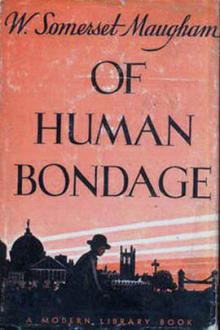
 Free Download
Free Download